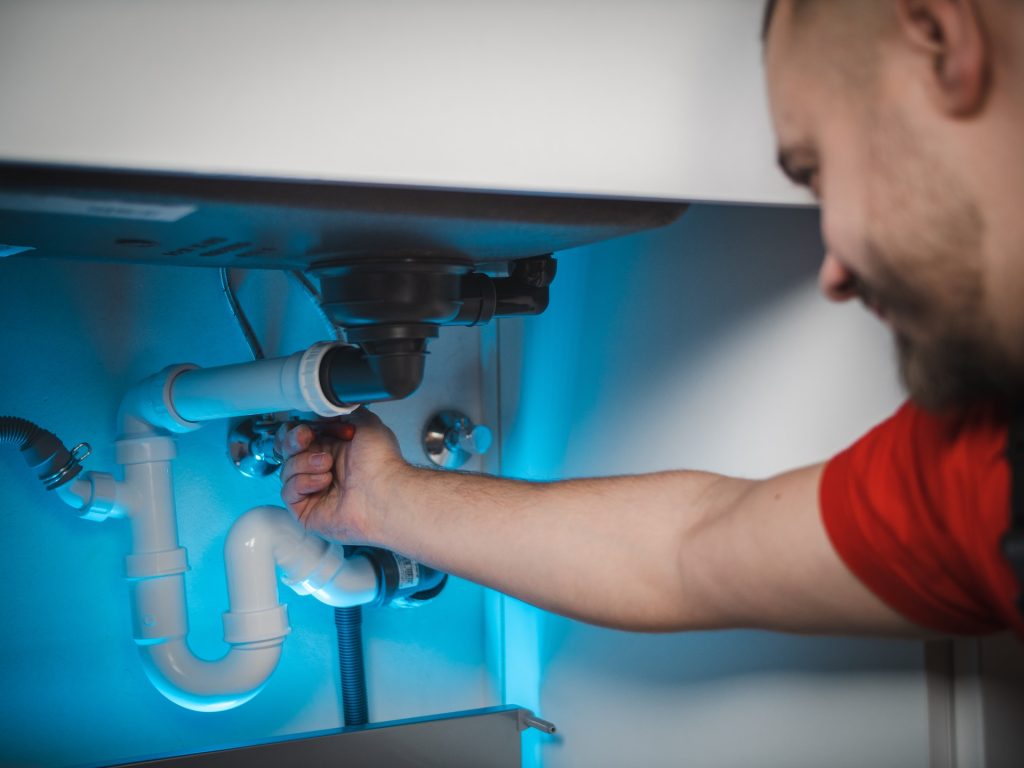- How to navigate complex small business acquisition processes.
- Insightful steps from sourcing to growing post-acquisition businesses.
- Methods to avoid common pitfalls in business acquisitions.
- How Acquira supports aspiring entrepreneurs through the acquisition journey.
- The commitment required, both in time and finances, for successful acquisitions.
Navigating the process of small business acquisition can be complex and filled with both challenges and opportunities.
This article addresses your most pressing questions about acquiring a small business, offering insights into each step of the journey, from sourcing to growing the business post-acquisition.
With guidance from Acquira, aspiring entrepreneurs can learn to avoid common pitfalls and make informed decisions that lead to successful business ownership.
Whether you’re curious about the time commitment involved or the financial aspects of acquiring a business, this article will provide you with the essential knowledge needed to succeed in business acquisitions with Acquira.
What Is The Hardest Part of the Acquisition Process?

Acquira breaks the acquisition process into 3 phases; sourcing the deal, closing the deal, and then growing the business post-acquisition. Sourcing the deal requires making your way through our Accelerator Program and learning how to find on-market and off-market deals and then performing due diligence on those deals to see if they’re a good fit. Closing the deal involves many professional services.
Sourcing is new for most people and it involves a lot of challenges. Most people fail during this stage because they’re using unsophisticated methods and become frustrated with the process. Acquira provides tools and guidance through the Accelerator Program to help the Acquira Entrepreneur achieve success as painlessly as possible.
Why Do Entrepreneurs Fail?
Most entrepreneurs fail because they come in excited and motivated but underestimate the amount of real hard work and dedication it’s going to take. Having a mentor guide the entrepreneur along the path and looking over their shoulder helps keep the process going along the right track. Having experienced Acquira acquisition professionals consulting on deals helps the entrepreneurs avoid pitfalls and focus on deals that can actually make it across the finish line.
What is the Success Rate?
Real world numbers can range from low individual percentages to maybe a quarter of serious buyers succeeding at best. With our Accelerator Program we are able to provide a level of training and support that helps push the majority of our entrepreneurs across the finish line.
| Read More: How Likely Are You To Succeed With Acquira? |
How Much Time Does It Take Pre- and Post-Acquisition?
Most entrepreneurs are going to spend 800-1000 hours pre-acquisition in the Accelerator Program mostly in the sourcing phase. Post-acquisition, the entrepreneur should expect to spend a lot of time in their business.
Even if the business is management run and turn-key, the entrepreneur will want to facilitate the transition in person. You’ll want to spend 3-4 days a week in the business building trust with the employees and management team. It will take between 6-12 months to implement systems and processes to grow the business.
What is the Total Financial Commitment?
Our programs allow the entrepreneur to buy a business with between $100-150K in upfront capital when we invest alongside them. To be comfortable and qualify for the SBA loan it is recommended to have closer to $200K available.
What Criteria Should I Consider When Searching For A Business?
Acquira evaluates business based on criteria including margin, industry growth, long-term value of the customer, asset heaviness, seasonality, and the metropolitan location of the business, to name just a few.
The Accelerator Program allows the entrepreneur to source businesses in any industry. We consider investment in deals based on financial fundamentals and our ability to execute our post-acquisition strategy, but businesses in the manufacturing and home services industries are what really gets us excited.
Do I Need To Make A Personal Guarantee?
The personal guarantee is an extremely important risk to consider when committing to a business acquisition. Ultimately the business itself needs to be strong enough to underwrite the deal and service its own debts. Acquira uses our M&A and operations experience plus a conservative mindset to evaluate deals. We only choose the best business to buy and invest our capital in.
What Do I Need For An SBA Loan?
To apply for an SBA loan, applicants need a well-detailed business plan, business and personal financial statements, profit and loss statements, and collateral. A good credit score is crucial, along with evidence of sound financial management, sufficient business experience, and the ability to repay the loan. Legal documents like licenses, contracts, and leases may also be required.
What Are The Milestones During the Acquisition Process?

The milestones we want our entrepreneurs to hit in the Accelerator Program are designed to get you to Letter of Intent (LOI) within 6 months and then into due diligence and financing a few months later. Seven-to-10 months is a normal timeline to close on a business for Acquira Entrepreneurs.
Why Can’t I Do This On My Own – Why Do I Need Acquira?
We live in an age where you can learn anything for free on YouTube, so you can technically do it on your own. It just might take awhile and you’ll probably make some significant errors along the way. We’ve already done it and curated the knowledge and experience in one place so you can do it quickly and with the insurance of experience looking over your shoulder. We can also put our capital in the deal so you can afford a bigger business that will make us both more money as partners.
What Do I Get For $9.5K?
You gain access to Acquira’s MBA-level M&A education. This includes in-depth training with real-world applications.
You will learn how to find and assess potential deals, get feedback on those deals from Acquira’s advisory and support team, and present those deals to our Investment Committee to help you decide whether you should pursue the acquisition.
Throughout the process, you will receive an unparalleled level of support, including access to a robust and active community of fellow Acquisition Entrepreneurs, weekly calls with Acquira’s team and invited guest speakers, and over 100 hours of recordings with acquisition experts.
It should also be mentioned that this payment can be rolled into the supporting cost of your loan if you use the SBA.
What Do I Get For $150K?
Our “Do It With You” option is a premium service that takes the load off your shoulders. Here’s how it works:
- An Acquira team member scouts and sources businesses for you.
- They present the most promising opportunities to our Investment Committee on your behalf.
- All you need to do is finalize your investment thesis. We’ll present you with a Letter of Intent (LOI).
- Should any deal fall through post-LOI, we resume the search without missing a beat.
This saves you a lot of time and hard work. Instead of searching for businesses, you can think about how to make them even better.
What Kind Of ROI / IRR Can I Expect?
The average business we help purchase with AEs makes $1 million in EBITDA and sells for $3.5 million, including working capital. The average down payment is 10% or $350,000. So for $419,500, you would own 100% of a business that is clearing $600,000 of free cash flow per year after debt service. In addition, the business is paying your salary as its General Manager.
If you choose to work with our equity fund, your down payment could be as low as 2% of the purchase price (the equity fund can cover up to 80% of the downpayment), or $70,000. The total supporting cost goes toward equity in the business, so you are ostensibly paying $70,000 for the business. Your upfront costs are then refunded through the terms of the loan or from the business after close.
If you choose not to work with Acquira’s equity fund, those upfront costs are refunded after the deal closes. This can be done either by working them into the terms of the loan, or the company can refund it out of the profits as a business expense and, therefore, a full tax write-off.
What Are The Best Sectors To Invest In?

We specialize in home services so those are certainly prime sectors to consider. The HVAC/R, plumbing, and roofing sectors represent stable and lucrative investment fields, each showcasing resilience and growth. The HVAC/R industry is pivotal even in economic downturns, with a projected CAGR of 6.1% from 2021 to 2026. Plumbing is expected to grow by $5.44 billion in 2020-2026. The roofing industry, driven by the consistent need for replacements, especially in aging homes, has been growing by an average of 2.7% each year between 2015 and 2020. These industries collectively highlight substantial and steady investment potential.
For more info read our guide Best Business Sectors to Buy in 2023.
What is Acquira Capital?

Acquira Capital is dedicated to nurturing the future of small businesses by offering capital through its equity fund. Addressing the “silver tsunami” of retiring Baby Boomer business owners, it seeks to sustain the legacy and contribution of small businesses to the economy and communities. Acquira Capital promises prospective investors robust returns, targeting an Internal Rate of Return (IRR) of 30%-35%. The fund operates under Regulation D 506(c), with a minimum investment threshold set at $100,000. Investors holding direct investments Right of First Refusal (ROFR) have a benchmark above $200,000.
For business buyers, when you receive a traditional SBA loan to acquire a business, you are required to pay 10% of the overall purchase price, at a minimum.
| Mini-Case Study: In order to break down the components of the purchase price, let’s look at an average deal that Acquira might see. If a company has an SDE (Seller’s Discretionary Earnings) of $850,000, you will likely see a multiple of 3.0x, although it may differ by industry type. An additional $150,000 – $250,000 will likely be requested to “overfund” the deal for growth expenses and reimbursement of supporting and closing costs. For example, let’s assume these two combined make a total project cost of $2.8 million, meaning you would need to make a downpayment of $280,000. If the equity fund were to cover 60% of the down payment, that would equal $168,000, leaving you to cover the remaining $112,000. In the example above, the Fund would receive economic ownership equal to 250% of the amount it has paid (known as the Equity to Enterprise Value Conversion, which in this case is 250%). The Fund paid $168,000 of the $2.6mm purchase price or 6.462%. This percent is multiplied by 2.5 times to get 16.152%, which we simplify here as 16%. So the Fund takes 16% ownership, and the AE takes the remaining 84%. The Fund receives non-voting participating preferred shares in exchange for this cash injection. There are also four key undertakings that the AE agrees to. They are designed to protect the dividend and increase the probability of an exit from the business within a specific number of years (see 4. below):
The Fund will generally not trigger an FMV before five years since it receives optimal tax treatment for an exit after five years. |
Can I Be A Majority Owner And Also 95% Passive Throughout Pre- and Post-Acquisition?
The short answer is that it’s incredibly unlikely for you to be a majority owner and also passive throughout pre- and post-acquistiion phases….at least at first.
Being a majority owner and stepping away from daily operations involves implementing effective systems and leadership teams to manage the business, a process supported by Acquira’s ACE Framework.
This framework enables Acquisition Entrepreneurs to understand the business nuances thoroughly before transitioning control, allowing them to focus on big-picture strategies while trustworthy teams manage day-to-day tasks. Establishing functional leadership and comprehensive succession planning are critical in this transition, ensuring the business’s continuity and value enhancement while allowing owners to be strategically involved.
Tell Me More About Acquira
Acquira is focused on fostering the growth of small businesses, particularly in the home services sector. Its mission is to assist the next generation of small business owners and deliver substantial returns. If you want to learn more about how we could help you acquire and operate a seven figure small business, fill out the form below. But space is limited!
Key Takeaways
- Small business acquisition can be intricate, requiring informed decisions.
- Effective leadership and knowledgeable guidance are crucial post-acquisition.
- Acquira’s Accelerator Program aims to ensure the success of entrepreneurs in acquisitions.
- Significant time and effort are essential pre and post-acquisition.
- Choosing the right sectors, like home services, can offer stable investment fields.
Acquira specializes in seamless business succession and acquisition. We guide entrepreneurs in acquiring businesses and investing in their growth and success. Our focus is on creating a lasting, positive impact for owners, employees, and the community through each transition.



